It’s only been a little over a year since the last installment of this series. Previous updates to this list were in 2007 and 2009. Part of the reason is that I’ve been watching many more films recently. I was still surprised by how long it took to get to the five films worthy enough to write one such installment but now all of the movies included were released within about the past two years which is more timely than what I’ve managed in the past. As usual the standard disclaimers apply and spoilers follow.
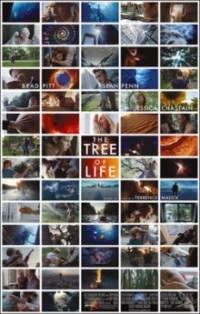 The Tree of Life
The Tree of Life
I’ve already gushed about this film here and don’t have much to add to it. It’s easily the most masterfully shot of all of the films covered so far in this series. There’s so much intentionality, so much attention and care, in every frame that it’s just mindblowing. Watching it makes you feel humble about how much time Terrence Malick must have spent to get the perfect parabolic arc of a thrown ball, to get the precise tone of sunlight he wanted on a baby’s toes and so on.
This is also a film that is simple plot-wise and yet extremely dense and complex in its themes, without being cerebral. At the same time it is eminently approachable, provided that you possess the requisite background knowledge of Christianity. I particularly love how it accurately and honestly presents the concept of purgatory, as opposed to the lovey-dovey mainstream vision of heaven, and does not shy from the harshness and pain of the religion, all the while being very much a pro-Christian film.
Some critics dislike this film because they find its ambition too pretentious. I beg to disagree. Yes, this is a film that makes no qualms about striving for masterpiece status and that can certainly be seen as arrogant. But when you succeed in portraying no less than the story of life on Earth then you have certainly earned the right to it.
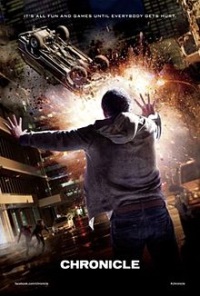 Chronicle
Chronicle
I watched The Avengers and thought this was as good as superhero movies were going to get. Then I watched Chronicle and learned how wrong I was. As I’ve said before, this is the Golden Age of superhero films, but let’s face it, deciding to don tights and become a hero is not a sane response to unexpectedly gaining superpowers.
This makes Chronicle one of the best portrayals of what it would really feel like to have superpowers. Part of what makes it work so well is that it doesn’t feel like a typical hero’s journey film at all. It feels like a serious drama which just happens to involve superpowered characters. Hence it imagines how normal people would react under these bizarre circumstances and successfully captures the wide gamut of emotions involved, from the disbelieving sense of discovery, the mischievousness of being able to pull off all kinds of cool tricks to the sheer joy and wonder at being able to do what no one else can.
I also love that the film ends with a familiar “with great power comes great responsibility” lesson that is handled far more intelligently and seriously than any of the Spiderman movies. On a final note the “found footage” conceit the directly assiduously adheres to throughout the film helps maintain verisimilitude but it does stretch credibility in some places.
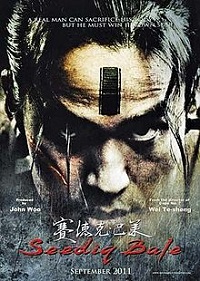 Warriors of the Rainbow: Seediq Bale
Warriors of the Rainbow: Seediq Bale
Traditional ethnic dances all over the world are beloved only of tourism ministers and their lackeys. To almost anyone else, they are thoroughly commercial and boring affairs to be politely suffered through. What this Taiwanese film achieves is therefore almost miraculous: the traditional Seediq dances and songs here take your breath away, you are awed by the sense of power and strength in each move and you intuit how these performances connect the people to their ancestors and thereby shape their lives.
Considering both parts as a single whole, this makes Warriors of the Rainbow a massive epic of more than four and a half hours. Yet it is never slow or boring. Indeed it may well hold the world record for the highest number of decapitations captured on film! At the same time, it’s surfeit of violence doesn’t detract from its quality as a serious film depicting a period of history that is well-known in Taiwan, but relatively unknown elsewhere in the world.
Finally I especially appreciated how fair-minded this film manages to be, in stark contrast to the horrifically one-sided anti-Japanese propaganda that is coming out of China these days. On the one hand, the viewer comes away with a strong sense of just how much is lost with the passing away of this remarkable people and their traditional way of life. On the other hand, you can’t help but think that however high-handedly the Japanese went about it, civilizing such a barbaric people is very much inevitable and even necessary.
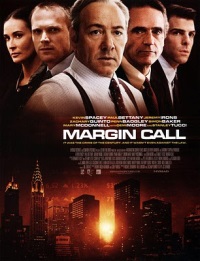 Margin Call
Margin Call
The effects of the 2008 financial crisis have yet to be fully played out. It goes without saying that no single film or documentary can capture the full extent of what happened. But Margin Call is an impressive attempt to portray the chain of events that led to the biggest crash of the crisis.
Though fictionalized and greatly simplified, this film succeeds not only in conveying a sense of what actually happened that could cause the world’s financial system to plunge overnight. More importantly it captures what went on in the minds of the movers and shakers of the financial world. The characters are greedy, yes, but the film avoids the mistake of making them feel like cartoon villains. Instead they are extremely intelligent, possess a keen awareness of the consequences of their actions and are even befuddled by the stupidly large amounts of money they are able to earn.
As with United 93, this film excels in making you feel as if you were almost physically present in the offices of a large Wall Street-based investment bank, living through the events almost in real time and breathing in the sense of momentous events in the making.
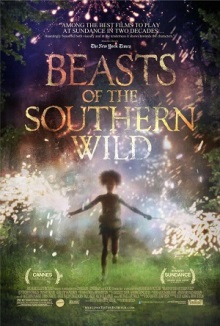 Beasts of the Southern Wild
Beasts of the Southern Wild
The opening scenes we see of Hushpuppy’s life tempt us towards sympathy. She lives amidst abject squalor, surrounded by filth and scrabbling for food on dirt, minded only by a father who seems abusively negligent. Yet we are confused because we also see that there is much joy in Hushpuppy’s life. She participates in local festivities with her folk with great gusto. She enjoys what food she has with relish. Most of all, we see for ourselves that as awful as her situation appears to us, this is her life and she wouldn’t want it any other way.
It is this confusion that makes this film so interesting and so absorbing. We are never quite sure what we are supposed to feel so we simply watch with fresh eyes and an open mind. Along the way we learn the rules of civilization that we are so used to may not be the right rules for everyone and that there are alternative ways to live that result in lives that are just as happy and fulfilling.
Quvenzhané Wallis stands out as the star of this film. It’s obvious that she is Hushpuppy and this film would not work at all without her. At the same time, it is quite delightful to see what effectively amounts to a fantasy world that exists in parallel to our own, firmly rooted in our reality, yet with its own beliefs, values and customs, and yes, even a little bit of myth and magic.
That’s it for this update of my list of favorite films. On an interesting note, of the five films included here, three represented the feature film debut of their respective directors. They are: Josh Trank (Chronicle), J.C. Chandor (Margin Call) and Benh Zeitlin (Beasts of the Southern Wild).